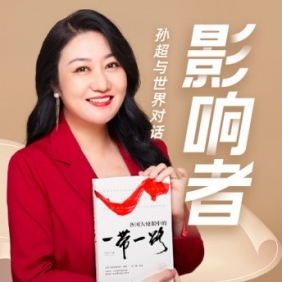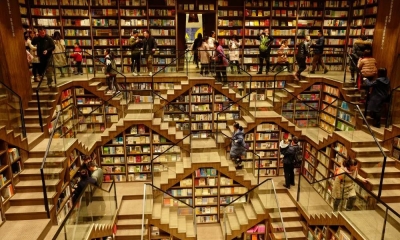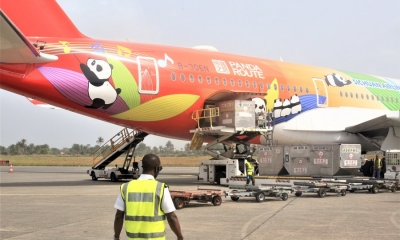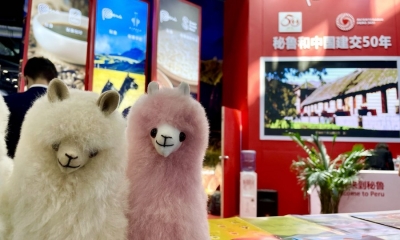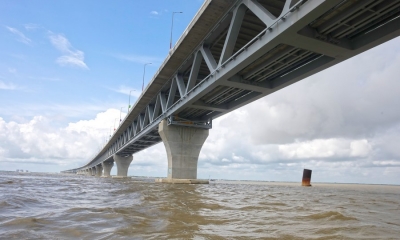Former EU Ambassador to China: We Need to Bring Chinese Wisdom into the Global System
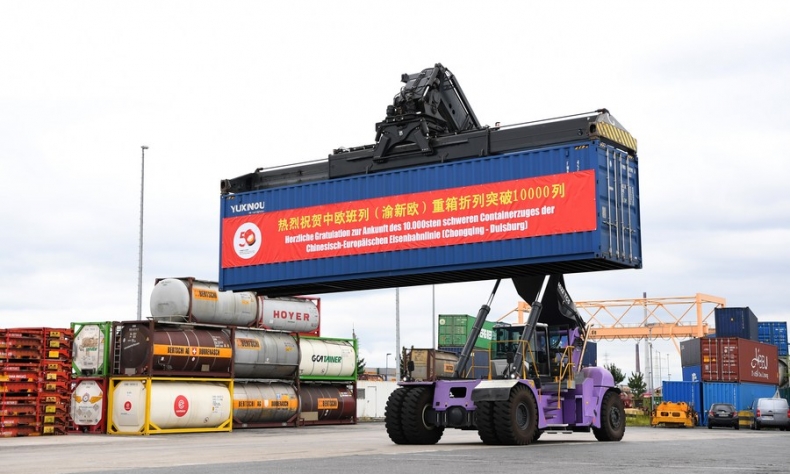
We share the same challenges, and we need to bring Chinese wisdom into the global system.
Editor’s Note: Mr. Nicolas Chapuis served as ambassador of the European Union (EU) to China between 2018 and 2022. He has deep knowledge of Chinese culture and literature. He worked in China as a representative of France five times, serving successively as cultural counselor of the French Embassy in Beijing, consul general of France in Shanghai, and deputy head of mission of the French Embassy to China. Before he ended his post as the EU ambassador to China in June 2022, Mr. Chapuis received an exclusive interview with Sun Chao, the author of “Global Leaders on the Belt and Road Initiative”. Authorized by Sun Chao, the excerpts of the interview are published by China Focus.
My first visit to China in 1979
Sun Chao: You have lived and worked in China for many years. I wonder, how do you see the development of China over the years?
Nicolas Chapuis: Well, indeed I have devoted my professional life to China. I graduated as a Chinese studies major, and my first stay in Beijing was over 40 years ago, in 1979. At the time I was an overseas student in Mongolia. I spent one month in 1979 in China during spring, and my first position in China at the French Embassy was in 1980—so, over 40 years of being a witness to China’s development.
Today, China is succeeding, transforming, and reforming itself into a world-leading economic, political, and military power. China’s population is shifting to cities, and its productivity is being unleashed. Chinese people’s lives are getting better and better.
It is worth mentioning China’s achievements in two main fields of the new industrial revolution: taking the lead in energy transition, and fighting against climate change. It is in China today that we see the experiences of commercial ventures related to energy, including electric cars, solar panels, radio energy, energy power, and so on. China is also taking the lead in 5G technology, quantum computing, and artificial intelligence in the world. All this is conducive for China to take on board a major leading role in the new century, the second part of the new industrial revolution—the digital revolution.
Sun Chao: Mr. Ambassador, you have traveled all over China in the past. Which city in China is your favorite one?
Nicolas Chapuis: There are many places in China that I can’t get away from—for example, Sichuan Province. And I have a very good relationship with Sichuan Province. As a French translator of Du Fu’s (712-770) works, people always want to talk to me about his works and his life. It was in 1983 that I first went to Sichuan Province. And I have been there many times since, including Du Fu’s thatched cottage. I am interested in reading and translating ancient Chinese poetry. Who doesn’t like the poets Li Bai and Wang Wei? But Du Fu was deeper, more sincere, and more delicate. When I was young, I preferred romantic poetry. My Chinese name Yu Bai is selected from two romantic writers, Yu Dafu and Li Bai.
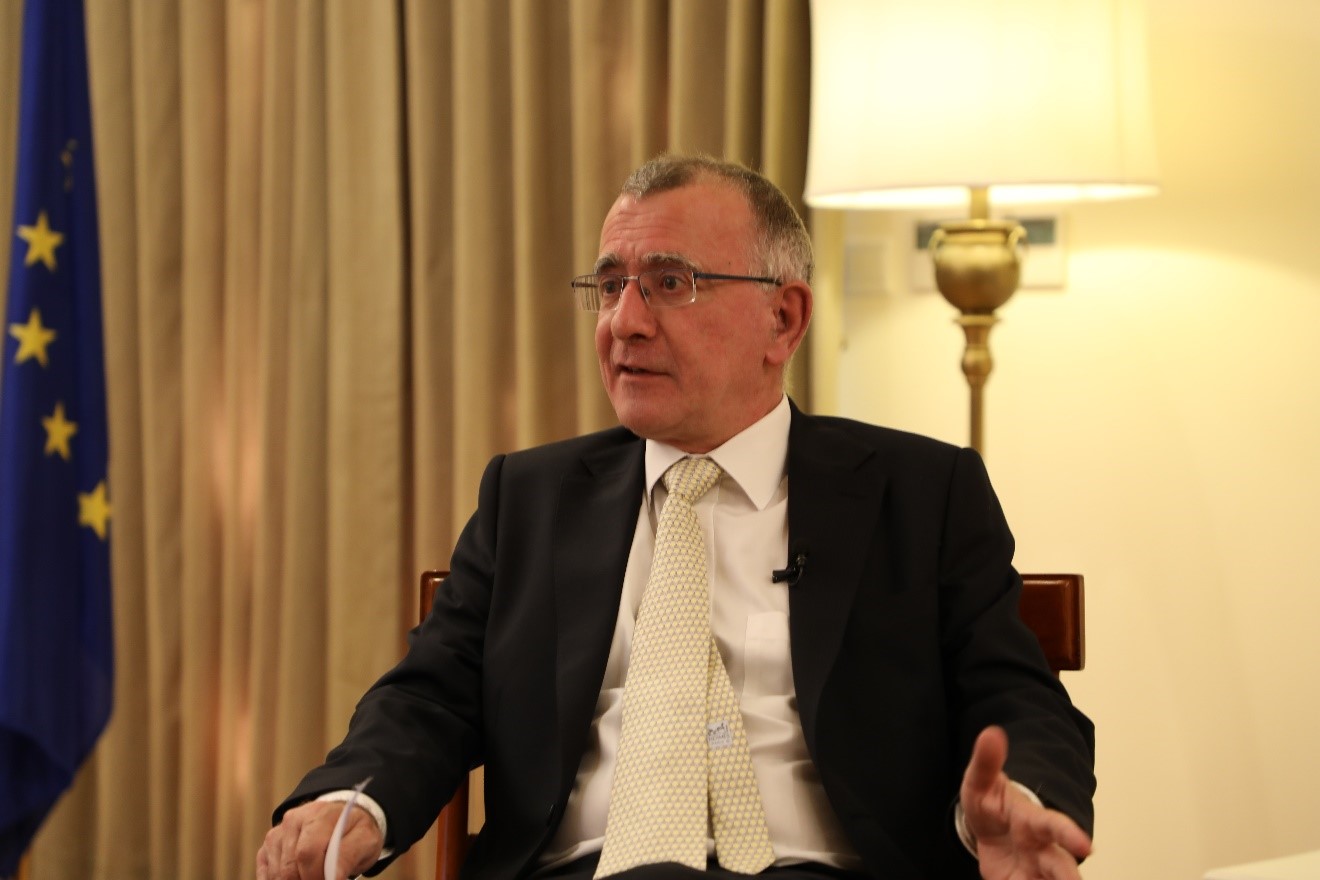
The development of China
Sun Chao: You have witnessed China’s opening up and development since the first time you came to China in 1979. What’s your point of view on China in the new era? How do you see China’s Belt and Road Initiative (BRI)?
Nicolas Chapuis: It is a globalized world, and China is a part of it. In a globalized world, we need global rules. I think it’s important to hear different voices so that innovative solutions can be taken to better meet various challenges.
We also hope that China will do something when the international order is under huge stress due to unilateralism, populism, and protectionism. And there is a very important work—how to organize trade policies for the new century, which will bring stability and order. What we do not want to see is a return to the past before the WTO (World Trade Organization) —a return to the law of the jungle. That led nowhere.
The Belt and Road Initiative is another sign, another marker of China going out, of China being willing to participate in world economic development. People have good news that now the effect of the Belt and Road Initiative is taken into account.
We, Europe, have our own strategy of development and connectivity. And we hope that we can exchange experiences and have in-depth cooperation between the Belt and Road Initiative from China on one hand, and the European strategy on the other.
We welcome a stronger China. Like President Xi Jinping once said to the German chancellor, “It’s not a zero-sum game. China is not winning at the detriment of others. The development of China provides opportunities for the rest of world.”
Sun Chao: China is the world’s largest developing country, while the EU is the largest group of developed countries. And the EU is China’s largest trade partner and source of imports. In short, China and the EU are each other’s important economic and trade partners. Our bilateral cooperation has been mutually beneficial. How can we deliver more benefits to the two peoples?
Nicolas Chapuis: Being the largest trade partner of China is meaningful. Our trade every day was about $2 billion before the pandemic. But we have a big deficit. And we need to improve the competitiveness of European companies and business in China.
As we all know, the world economy is facing multiple challenges. We always support high-level opening up, accelerate the building of a new development paradigm, and provide more market, investment and growth opportunities for companies of all countries.
Europe today is the most open market in the world, a very generous market. For example, if you come to any of our member states, you have access to the European market. When a Chinese company comes to Europe, there are no bars.
Finally, we need to have a fairer system and fairer competition. And we also need more market access in order to remain in our position as your largest trade partner.
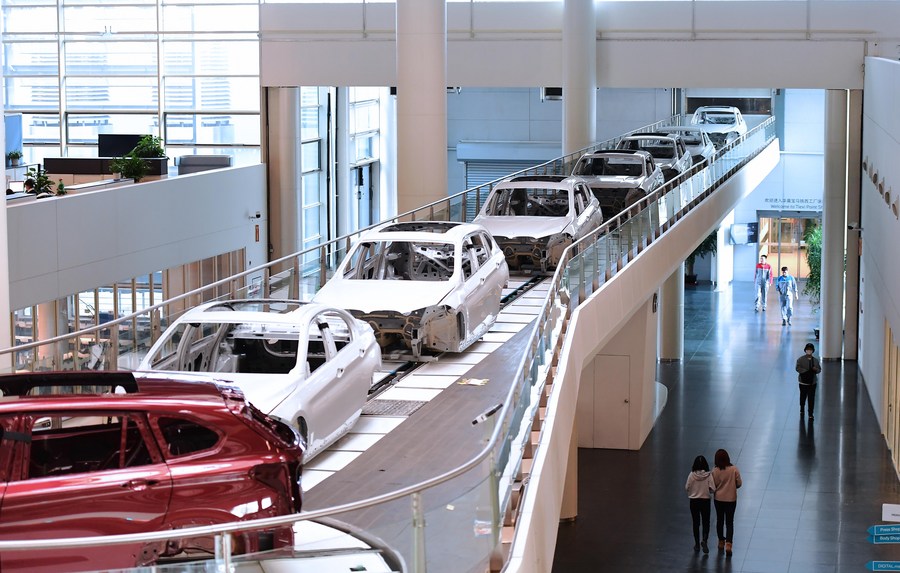
Sun Chao: Now, China has reached a consensus on third-party market cooperation with quite a few countries. I think European countries have more space for this kind of cooperation. Will the third-party market cooperation provide more possibilities for both of us?
Nicolas Chapuis: Actually, even in the past, we have done the third-party cooperation with China successfully. For example, in the 1990s, after the peace agreement was reached in Paris, China and France worked together in Cambodia. Under the guidance of the United Nations, we built up education, health, and social infrastructure.
Today, we have renewed calls for third-country cooperation because we see the need to have collaborative action in developing countries. Europe is among the biggest world donors. We are a major actor in the International Monetary Fund, the World Bank, and the Asian Development Bank. We play big roles in international cooperation and international development.
There are now large numbers of Chinese economists and diplomats who are taking up important positions, and we welcome it. It is high time Chinese professionals take their seats and exert their management skills at the top of these international organizations. China will see how the rest of the world sees China, which is important to China.
Peace and security, development, and human rights are the three pillars of the United Nations. We need to do more together in peace and security. China is contributing more and more in peacekeeping forces, taking up responsibility in the international system, fighting piracy, fighting cybercrime, and helping us to fight terrorism.
Facing challenges such as development reforms, free country partnerships, and the Sustainable Development Goals (SDGs), China has found ways, as one of the largest developing countries, of lifting hundreds of millions of people out of poverty and showing to other countries that it can be done, that it is possible.
We need to be able to have reasonable, intelligent and smart conversations in terms of human rights. We need to work on gender equality, disability, minority issues, and the rights of children.
China has the philosophy, value, and principle of “tianxia”—meaning, we are one planet and we share the condition of human beings. We share the same challenges, and we need to bring Chinese wisdom into the global system.
The European Union and Chinese related agencies have reached agreements, started conversations about development, and taken action. We also hope to see more specific third-party market cooperation projects.
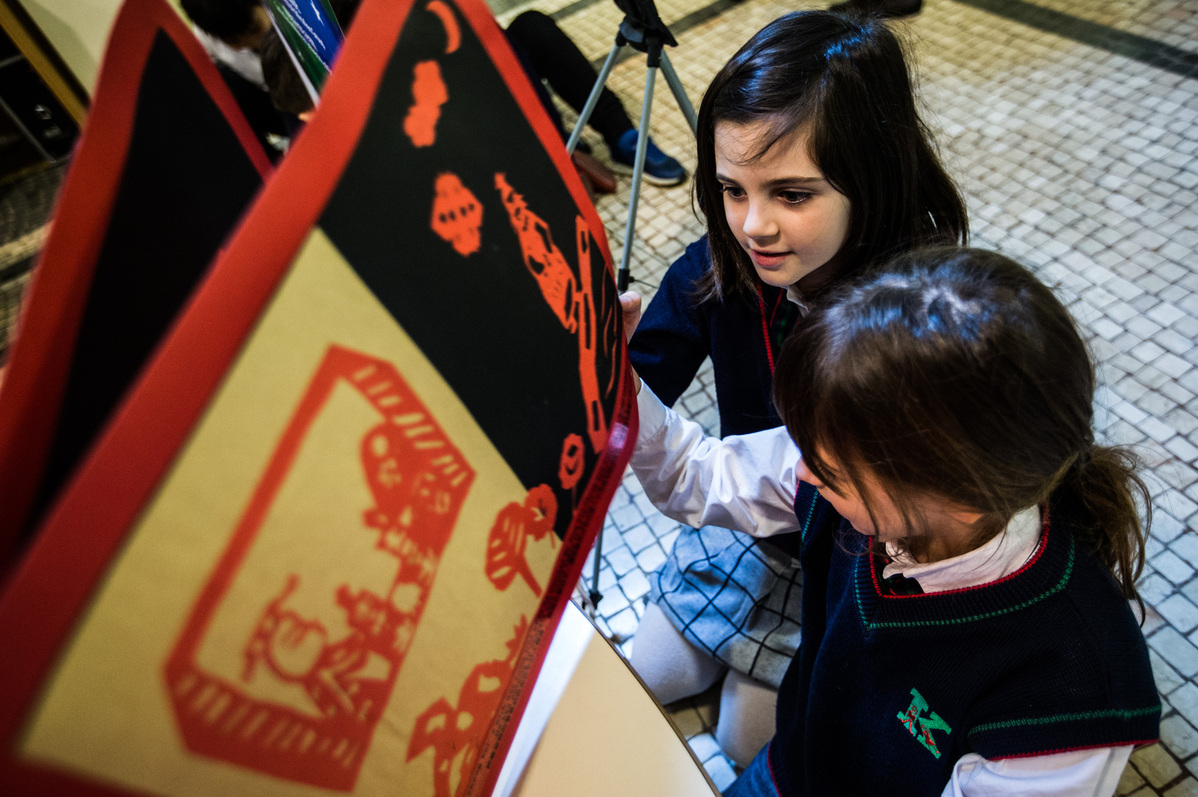
Sun Chao: Mr. Ambassador, as you know, China supports globalization and opposes decoupling. To stay open and grow economic and trade ties are good not only for China and EU, but also for the whole world. How can we keep boosting the development in the future?
Nicolas Chapuis: China is on the first priority on the agenda of the new European executives. The European Commission, is led by President Ursula von der Leyen, a female leader. It is worth mentioning that this time the government is composed half of women and half of men—it is the first time in European history we have had such gender parity. The new commission faces the challenge of defining new policies on China.
We had published a document, EU–China—A Strategic Outlook, where we confirmed that in the context of an ever-changing international order, we need more regions to engage in, including China. A very specific objective is to find common solutions to the problems that we are facing today.
We also successfully hosted the China–EU Summit before. The two sides committed to achieving the decisive progress required. The high level of ambition was reflected in substantially improved market access, the elimination of discriminatory requirements and practices affecting foreign investors, the establishment of a balanced investment protection framework, and the inclusion of provisions for investment and sustainable development. Both sides agreed to establish a political mechanism to continuously monitor the progress in the negotiations and on the progress made.
Unity in diversity
Sun Chao: The European Union is a highly diversified community with many different members, and every member has its own agenda and own challenges. I wonder, what are the key factors to bring the member states together?
Nicolas Chapuis: The European Community began in 1957 with six member states to make sure that war would never happen again on the European continent. In December 1991, the Maastricht Summit of the European Community adopted the Treaty on European Union, commonly known as the Maastricht Treaty. On November 1, 1993, the Maastricht Treaty came into force, and the European Union was born. In 2012, the European Union won the Nobel Peace Prize.
We have done incredible things—no more borders in the continent. People can work in any country. Europeans are free to move. Students are free to study in any European university, and the credits will be recognized everywhere in Europe. We are one market. So, the products certainly freely flow. EU standards mean extremely high-quality food, medicine, and other products.
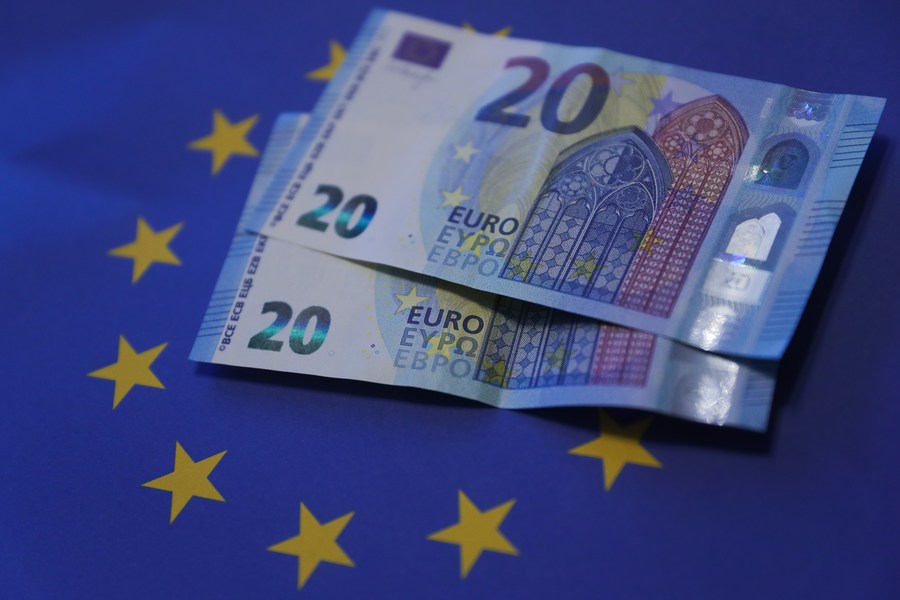
We also have a unified currency. There will be no more currency wars. When some European countries were going through extremely difficult economic and banking crises, Europe was united to overcome them. We are stronger today.
At the last election, more Europeans came to vote than ever before. “Unity” is the key word for us—it allows us to be able to have a voice in the world.
Of course, the EU doesn’t want to do everything. Now the new commission has three priorities. One, climate change; Two, the digital revolution; And three, migration.
Sun Chao: Europe is one of the most popular destinations to visit for Chinese. How do you see people-to-people exchange between China and EU?
Nicolas Chapuis: I have always been saying that Europeans should come to China to see the real China with their own eyes, not the China on the news. And Chinese people also should go to Europe to better understand Europe and European life.
People-to-people exchanges are the real reflection of bilateral relationship. Tourism is the foundation. Before the pandemic, the promotion year of tourism in 2018 was extremely successful. Figures before pandemic showed that only in the first half of 2019, Chinese visitors to Europe increased by 16 percent.
We were also trying to diversify the destinations. People may not just go to the big cities like London, Paris, Berlin, Madrid, and Barcelona, but also to the countryside, to get into the genuine fabric of European countries.
We planned an exhibition on the cultural roots of Europe, rooted in religion and transfer very often from one ministry to another. That was a powerful enlightenment on the history of Europe. Like China’s Grand Canal between Hangzhou and Beijing, we have in Europe special routes where people used to travel very often. The French people always used to go to Italy to learn about the Roman Empire and Latin. The German people used to come to France. Spanish people used to go to France to take classes. So, according to these historical origins and traditions, we have identified in our exhibit 38 routes.
Sun Chao: Would you like to share your favorite saying or motto from the EU?
Nicolas Chapuis: What I would like to share is the slogan of the EU, “Unity in Diversity”.
 Facebook
Facebook
 Twitter
Twitter
 Linkedin
Linkedin
 Google +
Google +



